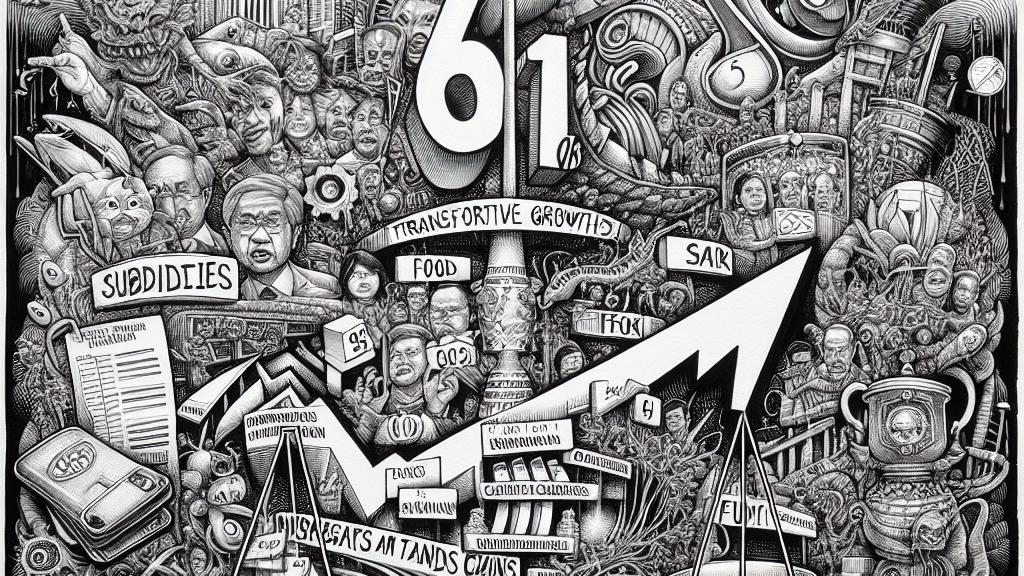Malaysia's Expansionary Budget: Balancing Growth and Subsidy Cuts
Overview
- Prime Minister Anwar's bold budget aims to jumpstart Malaysia's economy.
- Major tax increases paired with strategic subsidy reductions seek fiscal balance.
- Targeted subsidies are set to prioritize assistance for those in dire need.

Overview of Malaysia's Economic Strategy
In an ambitious move, Prime Minister Anwar Ibrahim is poised to unveil a transformative expansionary budget for 2025, focusing on revitalizing Malaysia's economic landscape. With rising public confidence and positive economic indicators, the government intends to harness this momentum for progressive changes. A significant highlight of the budget is the plan to raise the Sales and Services Tax (SST) from 6% to an impactful 8%, affecting many everyday items while ensuring food and basic telecommunications remain exempt. This increase exemplifies the government's commitment to generate more revenue. Furthermore, the introduction of a novel capital gains tax on unlisted shares aims to expand the tax base, ensuring that economic benefits reach a wider audience, thereby steering the nation toward sustainable growth.
Targeted Approach to Subsidies
A groundbreaking aspect of this budget is the shift from broad subsidies, often wasted on wealthier segments, to a more targeted assistance mechanism. Historically, blanket subsidies have created inefficiencies and rampant misuse of public funds. Prime Minister Anwar's strategy involves redirecting these funds to support low-income families who truly need it. For instance, the Rahmah Cash Contribution, currently at RM8 billion, is expected to rise to RM10 billion, benefiting nearly nine million residents. This approach not only focuses on the welfare of disadvantaged groups but also reflects a commitment to fiscal prudence. By implementing targeted subsidies, the government hopes to create a more equitable system where support effectively reaches vulnerable populations, thereby enhancing their quality of life.
Challenges and Future Prospects
While the aspirations behind this budget are commendable, they also come with potential challenges for ordinary Malaysians. As tax increases on essential goods, such as food and fuel, loom on the horizon, many households may face economic pressure. However, the government is balancing these challenges with a clear commitment to social welfare. Essentially, this budget calls for a fine line between growing the economy and providing robust support to those affected by rising costs. To ensure success, it will be crucial for Prime Minister Anwar's administration to keep engaging with citizens, fostering transparency, and adapting policies based on public feedback. Ultimately, the effectiveness of this ambitious budget will hinge on the government's ability to find a harmonious balance between economic growth and social equity, charting a new course for Malaysia’s future.

Loading...